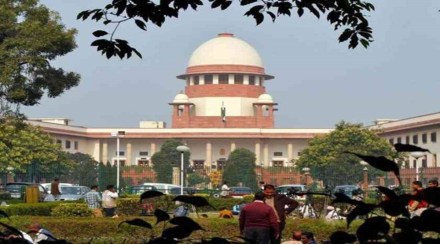In a setback to Loop Telecom, the Supreme Court on Thursday dismissed its appeal for refund of around 1,500 crore it had paid to the DoT as entry fee for securing 2G spectrum and Unified Access Licence in 21 service areas in 2008. Its licences were among the 122 cancelled by the Supreme Court in 2012. While upholding the TDSAT’s 2015 decision, a bench led by Justice DY Chandrachud said mere acquittal of Loop Telecom’s promoters by a special CBI court does not make the company and its promoters eligible for getting refunds, as it hadn’t secured licences as per law and had engaged in “fraud” and “sham transactions” with the Essar Group. Loop had claimed a refund of1,454.94 crore that it had paid as the entry fee (together with interest) and licence fees.
The top court noted that the scope of criminal trial before the lower court was limited to the question as to whether Loop’s promoters had cheated the DoT by providing a false representation of its compliance with Clause 8 of the UASL Guidelines since it was allegedly being controlled by the Essar group.
“The process leading up to the award of the UASLs and the allocation of the 2G spectrum was found to be arbitrary and constitutionally infirm,” the judgment stated, adding that the now-quashed first come-first served policy had allowed private parties to confer unlawful benefits on a group of selected bidders by which Loop benefitted at the cost of the public exchequer.
The CBI had charged the promoters of the company — Kiran Khaitan and IP Khaitan — with fraud, conspiracy and corruption, and were made accused in the 2G case, but were eventually acquitted by a CBI court in 2017 for lack of evidence.
The apex court said that the acquittal of the company’s promoters doesn’t obliterate the findings contained in the top court verdict which had set aside spectrum licences. “ as a beneficiary and confederate of fraud, Loop cannot be lent the assistance of this court for obtaining the refund of the entry fee,” Justice Chandrachud, writing for the bench, stated.
Loop had submitted that the policy which was adopted by the Union government by allowing a set off to licensees whose licences have been quashed subject to their participating in and being found successful in the fresh auction, suffers from manifest arbitrariness.
However, the Union government had argued that the set off policy was formulated in order to encourage participation of all telecom operators in the subsequent auction, increasing the possibility of higher price discovery to the benefit of the public exchequer. The policy sought to increase participation at a subsequent auction by offering a concession in the form of a set off of the previously paid entry fee, in case the bidder had emerged successful in the fresh auction, it added.
